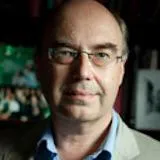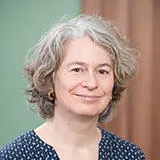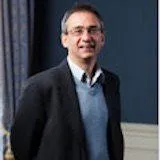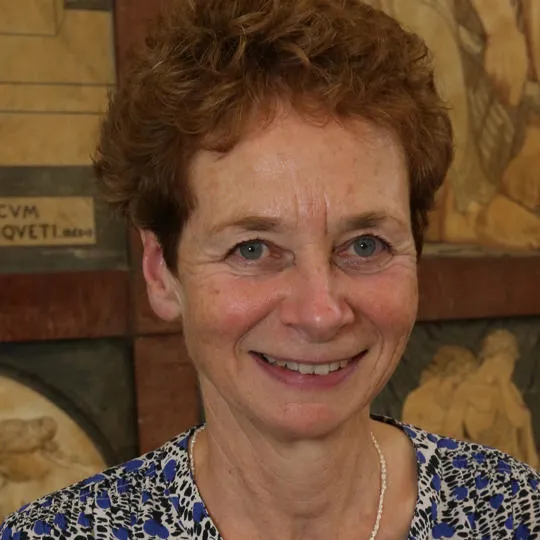It gives me great pleasure to welcome this new cohort of Fellows, who are as impressive as ever and remind us of the rich and diverse scholarship and research undertaken within the SHAPE disciplines – the social sciences, humanities and the arts. I am very much looking forward to working with them on our shared interests. The need for SHAPE subjects has never been greater. As Britain recovers from the pandemic and seeks to build back better, the insights from our diverse disciplines will be vital to ensure the health, wellbeing and prosperity of the UK and will continue to provide the cultural and societal enrichment that has sustained us over the last eighteen months. Our new Fellows embody the value of their subjects and I congratulate them warmly for their achievement.
President of the British Academy, Professor Julia Black
23 July 2021
Four King's academics elected as British Academy Fellows
The British Academy has elected four King’s academics as new Fellows

The British Academy has elected four King’s academics as new Fellows in recognition of their outstanding contribution to the Social Sciences, Arts and Humanities.
The elected Fellows from King’s are:
- Professor Davina Cooper, Research Professor in Law and Political Theory
- Professor Julia Crick, Professor of Palaeography and Manuscript Studies
- Professor David Edgerton, Hans Rausing Professor of the History of Science and Technology and Professor of Modern British History
- Professor Javed Majeed, Professor of English and Comparative Literature
The British Academy is the UK’s national academy for the humanities and social sciences. Founded in 1902, it is a Fellowship of over 1400 of the leading minds in these subjects from the UK and overseas.
Professor David Edgerton (History) said: “I am delighted and honoured to have been elected and look forward to working with the British Academy to demonstrate the value to society at large of critical and engaged history, which is needed now more than ever.”
Professor Edgerton is the author of the acclaimed recent history of the United Kingdom, The Rise and Fall of the British Nation: A Twentieth-Century History (Penguin).
Professor Javed Majeed, (English) said: "I am honoured to have been elected and I look forward to working with the British Academy to increase our understanding of colonial and postcolonial South Asia and its intellectual, literary, and linguistic connections with Britain."
Professor Majeed’s most recent work is his two-volume study Colonialism and Knowledge in Grierson’s Linguistic Survey of India and Nation and Region in Grierson’s Linguistic Survey of India (2019).
Professor Julia Crick (History) commented: "There are more than 100,000 medieval manuscripts within a short walk of King’s. They constitute a vast resource for exploring twenty-first century research questions, not simply about the traffic of information and ideas in the pre-modern world, but also about individuals and the interaction between cultures and different writing systems. For me election to the British Academy is not only a supreme honour: it strengthens the case for the advancement of skills and knowledge in my chosen field."
For over 30 years, Professor Davina Cooper has been researching radical forms of state and non-state governance, from municipal activism in the 1980s to contemporary everyday utopias, exploring the challenges and conflicts they face, along with new ways of thinking to which they give rise, especially on the state, equality, gender, and property. Her most recent book, Feeling like a State: Desire, Denial, and the Recasting of Authority (2019, Duke) considers how legal dramas over sexuality can support new, surprising ways of reimagining what it could mean to be a state.
Since April 2018, she has led an ESRC-funded project on The Future of Legal Gender: https://futureoflegalgender.kcl.ac.uk/
This project explores the implications (positive and negative) of removing sex from birth certificates meaning people would no longer have a legal gender status (although law and government could and should continue to counter gender inequalities). Focusing on an imagined future reform provides a productive way of teasing out different understandings of gender and considering people’s ambitions, dreams, and fears for the future.
Professor Cooper added: “I am delighted to have been elected as a fellow of the British Academy. Among other things, I hope to contribute to its engagement with issues of equity and diversity, along with new research methods that harness people's hopes and fears with a future that they are also building.”
A total of 84 Fellows, 29 Corresponding Fellows and 3 Honorary Fellows have been elected to the Fellowship.
Current Fellows include the classicist Professor Dame Mary Beard, the historian Professor Sir Simon Schama and philosopher Professor Baroness Onora O’Neill, while previous Fellows include Dame Frances Yates, Sir Winston Churchill, Seamus Heaney and Beatrice Webb. The Academy is also a funding body for research, nationally and internationally, and a forum for debate and engagement.




